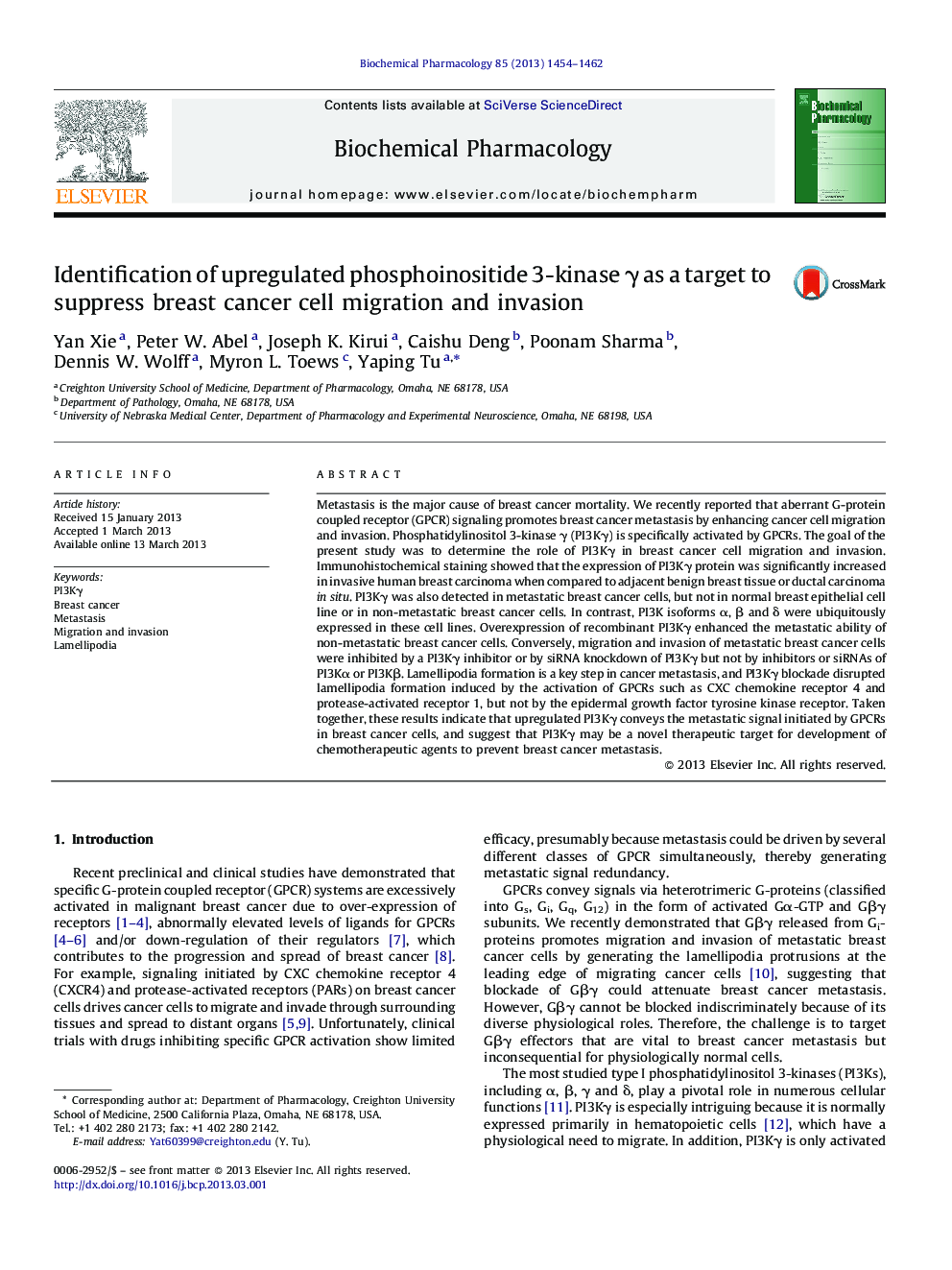| Article ID | Journal | Published Year | Pages | File Type |
|---|---|---|---|---|
| 2512733 | Biochemical Pharmacology | 2013 | 9 Pages |
Metastasis is the major cause of breast cancer mortality. We recently reported that aberrant G-protein coupled receptor (GPCR) signaling promotes breast cancer metastasis by enhancing cancer cell migration and invasion. Phosphatidylinositol 3-kinase γ (PI3Kγ) is specifically activated by GPCRs. The goal of the present study was to determine the role of PI3Kγ in breast cancer cell migration and invasion. Immunohistochemical staining showed that the expression of PI3Kγ protein was significantly increased in invasive human breast carcinoma when compared to adjacent benign breast tissue or ductal carcinoma in situ. PI3Kγ was also detected in metastatic breast cancer cells, but not in normal breast epithelial cell line or in non-metastatic breast cancer cells. In contrast, PI3K isoforms α, β and δ were ubiquitously expressed in these cell lines. Overexpression of recombinant PI3Kγ enhanced the metastatic ability of non-metastatic breast cancer cells. Conversely, migration and invasion of metastatic breast cancer cells were inhibited by a PI3Kγ inhibitor or by siRNA knockdown of PI3Kγ but not by inhibitors or siRNAs of PI3Kα or PI3Kβ. Lamellipodia formation is a key step in cancer metastasis, and PI3Kγ blockade disrupted lamellipodia formation induced by the activation of GPCRs such as CXC chemokine receptor 4 and protease-activated receptor 1, but not by the epidermal growth factor tyrosine kinase receptor. Taken together, these results indicate that upregulated PI3Kγ conveys the metastatic signal initiated by GPCRs in breast cancer cells, and suggest that PI3Kγ may be a novel therapeutic target for development of chemotherapeutic agents to prevent breast cancer metastasis.
Graphical abstractFigure optionsDownload full-size imageDownload as PowerPoint slide
